What makes commercial aluminium windows different from residential windows?
Commercial systems are engineered for larger spans, heavier glazing, higher wind loads, and greater durability. They are tested to BS 6375 (Performance of Windows and Doors) for weather, strength, and security.
Which regulations must aluminium windows comply with?
Key regulations include Approved Document L (thermal performance), Approved Document Q (security), and Approved Document B (fire safety at escape routes).
What glazing options are available for commercial aluminium windows?
We supply double, triple, laminated, acoustic, and solar control glazing to meet project-specific requirements.
How do aluminium windows perform thermally?
Modern systems feature polyamide thermal breaks and insulated profiles to achieve low U-values, supporting net-zero carbon targets.
Can aluminium windows be PAS 24 certified?
Yes. We provide PAS 24:2022 tested windows, giving contractors assurance that they meet secure-by-design requirements.
What risks do contractors face when specifying windows?
Risks include poor airtightness, non-compliant security, or weak fixings. We mitigate this with robust design checks, tested systems, and correct site installation.
Are aluminium windows suitable for high-rise applications?
Yes. Systems are tested for high wind pressures, with reinforced profiles and suitable fixing details to maintain safety.
Can windows integrate with curtain walling and rainscreen cladding?
Yes, but correct detailing is critical. Contact us early so we can coordinate interfaces with systems such as Technal, Senior Architectural Systems, and Aluprof.
What finishes are available?
We offer powder coating, anodising, dual colour finishes, and specialist coatings such as marine-grade for coastal projects.
Why choose Advanced Glass for aluminium windows?
We integrate design, supply, and installation, ensuring compliance, performance, and reduced interface risk within the overall façade package.

